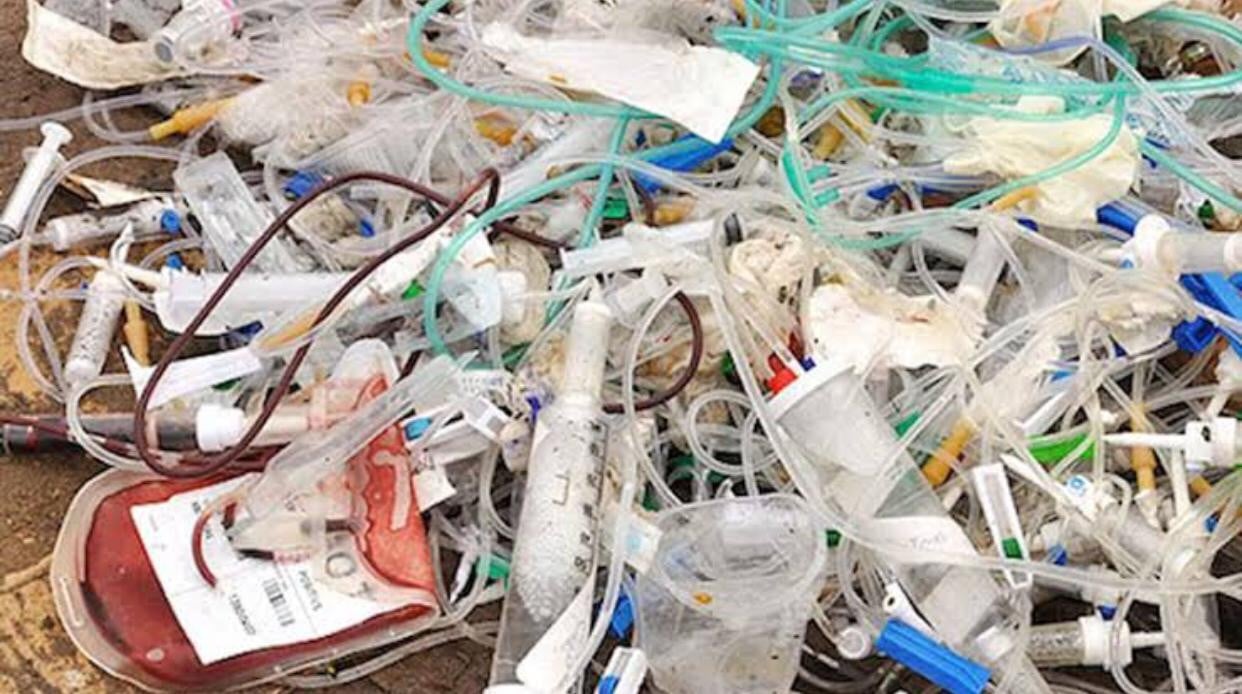

In Pakistan, it is common for civic agencies to dispose of solid waste at landfill sites. The real challenge is how to handle infectious hospital waste generated at public and private hospitals, clinics, pathological laboratories, and Basic Health Units (BHUs), etc.
This waste may comprise used urine bags, blood bags, syringes, plastic containers carrying specimens of blood, human tissues, human excreta, swabs, and more. If dumped at landfills, the hospital waste can contaminate the soil, underground water as well as other municipal waste that comes in contact with it.
The safest methods of disposing of hospital waste are to burn it in incinerators or treat in autoclaves -- industrial equipment used for sterilisation -- before burying it in soil. By no means can it be made fit for re-use.
But unfortunately, hospital waste is in great demand by recyclers due to its high quality of plastics. They buy it against the law. This practice goes on mainly due to weak enforcement mechanism and their alleged nexus with law enforcers.
Jamshed Khan, owner of a plastic manufacturing unit, tells TNS that such mafias play havoc with the lives of people as well cause difficulties for businessmen like him. "I cannot compete with them because of the low price of their products made from hospital waste". The products made from recycled hospital waste include feeding bottles for babies, disposable plastic spoons, plates and straws, toys, disposable glasses and other household items available in the market for low price.
The approved raw material for such products is expensive and imported," he adds.
Medical facilities in Pakistan generate around 250,000 tons of waste every year of which a large quantity remains untreated or goes into the hands of recycling mafias. There are very few incinerators in the country and not even all of them are functional. This issue was also taken up by the Supreme Court of Pakistan (SCP) recently which ordered release of funds for installation of incinerators at the Pakistan Institute of Medical Sciences (PIMS) in Islamabad.
Rehan Paracha, Project Director, Hospital Waste Management, at the Lahore Waste Management Company (LWMC), tells TNS that the company has developed a foolproof mechanism under which hospital waste is collected, put in bags carrying barcodes and transported to incinerators under IT-based surveillance to eliminate chances of pilferage. "They are doing this at a limited scale at the moment but the provincial government plans to scale it up soon."
Such initiatives need to extend their coverage to the whole country.
-- Shahzada Irfan Ahmed